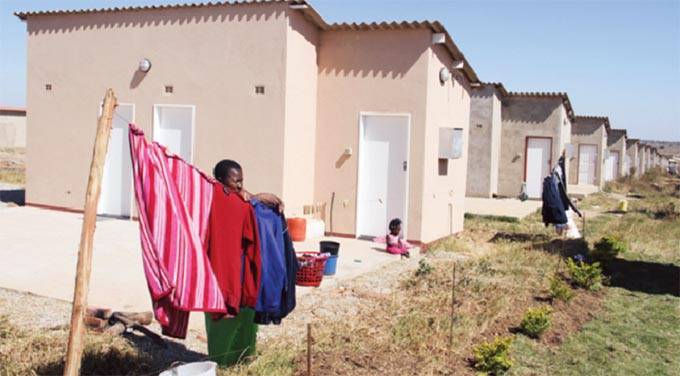Source: Editorial Comment: Low-cost housing possible to achieve | The Herald

GOVERNMENT’s decision to partner the private sector in a large-scale housing project in line with Vision 2030 gives hope to the more than two million people on the national housing waiting list.
Work has started in Norton where 2 200 houses are under construction in a partnership between Government and a private partner. With Government targeting to build 200 000 houses and flats by 2023, the Norton project is a harbinger of greater things to come.
The housing project dovetails with Government’s Vision 2030, which seeks to achieve an upper middle income economy driven by various variables, among them housing.
Without housing and related infrastructure, it is difficult to achieve socio-economic development.
With the country reeling from the effects of the Covid-19 pandemic which has dampened economic activity, particularly in the informal sector, a project of such a magnitude should rejuvenate various sectors of the economy, whose activities and productions feed into the project. The construction industry is a major source of employment, offering jobs to thousands of the country’s unskilled, semi-skilled and skilled workforce.
It also generates one of the robust multiplier effects through its extensive backward and forward linkages with other sectors of the economy.
As a result, we should start witnessing an increase in brick production, cement and the manufacturing of more construction consumables to feed into the projects.
The steel manufacturing industry will also benefit since most housing structures need reinforcement, while glass suppliers can start increasing production too.
The downstream effects of such a project are too big to ignore. In efforts to provide quality housing for its people, Zimbabwe should not be left behind in the global narrative, where cities are the new frontier.
Cities are powering economic growth and attracting the ambitious, resourceful and talented, who are increasingly moving away from big cities.
By its geographical proximity, Norton should be able to meet these requirements, by having good housing facilities, closeness to existing job centres and potential industries.
We hope to see more similar projects taking shape outside major cities and towns, once local authorities play their part by availing land to private partners with capacity to build houses.
Because land is finite, local authorities should give precedence to private players constructing high-rise buildings and flats to maximise on space.
These can either be built on rent-to-buy basis or long-term mortgage schemes to give prospective home owners an opportunity to decide what suits them.
Housing projects with a proper framework and supported by the Government and private partnership will eventually elbow out land barons, who have become a menace in most of the country’s major cities.
One of the major reasons which gave rise to land barons in recent years was the failure by local authorities to fully service residential stands.
As a result, they ended up parcelling out land to people of questionable intentions in their bid to provide accommodation to residents.
Because of its critical role in socio-economic development, housing developmental projects require a litany of supporting conditions to be successful, especially if it is going to be rolled out on a large scaled.
Critically important is the issue of cost. Construction must be low enough to be affordable, giving various options of payment to ensure accessibility. They will of course be high-end earners, who can still be accommodated in a different scheme.
Financial institutions like banks, must also avail money for both small construction firms that want to be considered for such projects. Part of the finances should also be set aside for mortgages for potential home seekers who want long term payment schemes.
Coming from a background of poor planning caused by housing co-operatives,who had been settling people on unserviced land, we call for the proper planning of infrastructure in advance of settlement. Once that has been achieved, residential services must follow construction requirements.
Funders of the Norton project, Shelter Afrique, a Pan African Bank, which is bankrolling the project at a cost of US$65 million have taken the notes to the heart by servicing the land before construction. Roads are being tarred and sewer pipes being laid, a standard procedure private land developers should comply with.
We believe supporting conditions can be addressed once Government puts in place appropriate policies to ensure that the housing projects are implemented holistically without cutting corners.
Like what National Housing and Social Amenities Minister Daniel Garwe rightly said, not everyone will own a house, but the nation should amplify Vision 2030 by ensuring the provision of decent accommodation for all.
COMMENTS